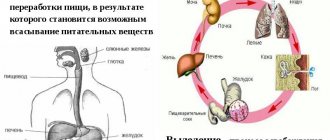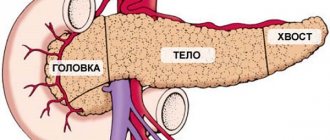Such an unpleasant phenomenon as nausea with gastritis is familiar to everyone who has experienced a malfunction of the digestive system. Dealing with this evidence of health problems is not as easy as it may seem at first glance. Most modern drugs available over the counter only temporarily eliminate symptoms and therefore cannot be considered effective.
A combination of medications prescribed by a doctor, lifestyle changes and a constant therapeutic diet will really help get rid of nausea with gastritis.
Gastritis is characterized by inflammation of the gastric mucosa, has different types, and is distinguished by the fact that it very quickly passes from the acute stage to the chronic form. Regardless of the type of illness, severe nausea is considered its constant companion.
It is impossible to say exactly how long symptoms last in people with digestive problems, since each case is individual. Some patients complain of periodic mild malaise, while others, in the absence of comprehensive treatment, complain of constant nausea.
Often such patients are bothered by mild nausea in the morning, before meals or after meals. In other cases, this symptom is so pronounced that the patient is plagued by frequent vomiting with dizziness and acute pain in the stomach.
People most often suffering from diseases of the digestive tract:
- having a negative hereditary factor;
- prone to overeating;
- those eating dry food (sandwiches, fast food);
- those who do not comply with their diet;
- “those” on strict diets for weight loss;
- smokers and drinkers of strong alcoholic drinks;
- leading a sedentary lifestyle.
If you experience nausea due to gastritis, you should consult a doctor to clarify the diagnosis and prescribe treatment. Trying to deal with a recurring problem on your own can lead to stomach ulcers and intestinal diseases.
Why does nausea occur?
Many patients are often interested in the question: why do they feel sick with gastritis? During illness, swelling of the cells in the thickness of the gastric walls occurs, they are damaged and inflamed. After filling the stomach cavity with food, the epithelium experiences additional irritation, and in response it begins to react.
Nerve fibers passing through the entire stomach send signals to the brain so that it gives the body an order to empty the stomach cavity of the food bolus. This is how the inner surface of the stomach tries to protect itself from the agent that has penetrated into its work. The body believes that by getting rid of this, it will more quickly recover from the inflammatory process.
The painful sensation in the stomach cavity sometimes ends with vomiting. After this, the patient feels relief for some time. Vomiting with gastritis torments the patient regularly, or appears occasionally.
The structure of the digestive system
Digestive system
Food in the mouth is processed by saliva, passes through the gastroesophageal sphincter, and enters the stomach. Here it mixes with gastric juice, the food bolus becomes acidic.
The food then passes through the duodenogastric sphincter and enters the duodenum. Bile and pancreatic juice enter here, the contents become alkaline. Then the food goes further through the small intestine, where the main absorption of food nutrients occurs, and through the large intestine, where water is resorption and feces are formed.
Nausea, as a feeling of painful discomfort along the esophagus and in the epigastric region, can appear with many diseases of the digestive tract. Duodenitis, biliary dyskinesia, chronic cholecystitis, pancreatitis - these gastrointestinal problems are often accompanied by nausea and vomiting. Some intestinal diseases can also cause a feeling of nausea.
Advice! If you often experience nausea after eating, this is a serious reason to undergo an in-depth examination and identify the true cause of this disorder!
Other manifestations of gastritis
It should be borne in mind that nausea and vomiting are not the only symptoms of gastritis. As the disease progresses, a person’s general condition worsens, and characteristic symptoms for this disease appear:
- pain and heaviness in the epigastric region;
- discomfort appears mainly in the morning;
- an unpleasant taste in the mouth, which is very pronounced and permanent;
- belching of just eaten food or empty air;
- abdominal bloating, feeling of fullness in the stomach;
- rapid satiety during meals, heaviness after eating.
To get rid of nausea with gastritis, patients try to eat less, sometimes their appetite disappears altogether. Insufficient intake of nutritious calories from food leads to the fact that the patient begins to lose weight sharply and lacks vitality.
If these signs appear, a person should contact a medical facility for consultation. Timely and adequate assistance will quickly reduce all manifestations to remission. Next, all patients need to monitor their diet and eliminate all provocateurs so as not to cause an exacerbation again.
Why is vomiting dangerous?
Frequent removal of vomit definitely has a negative effect on the state of the gastrointestinal tract and overall health. The process itself is quite unpleasant, although it sometimes brings relief, but at the same time it leads to the following negative consequences:
- Dehydration of the body. The loss of fluid corrects the course of many metabolic processes and leads to salt and electrolyte imbalance.
- Deficiency of nutrient intake. In cases of constant vomiting, the tissues begin to receive less nutrients, and this affects all functions of the body, leading to weight loss due to gastritis, anorexia, exacerbation of many diseases or the formation of new pathologies.
- Increased blood pressure, decreased heart rate. From severe stress, there is a possibility of heart attacks if problems with the cardiovascular system have already been recorded.
- The appearance of ulcers and inflammation of the gums and larynx, since vomit contains a large amount of acids that corrode the oral mucosa.
Weakness and vomiting with gastritis can occur for various reasons, but most often due to the fact that the mucous membrane begins to become irritated when eating food, especially sour foods. The mucous membrane of the stomach becomes inflamed during gastritis, so any spicy, salty and sour food will only aggravate this process and provoke pain, and then nausea and vomiting. Nausea can also occur for the following reasons:
- Digestive system dysfunction
- Increased acidity of gastric juice, which, when eating junk food, begins to irritate the mucous membrane and cause nausea.
- The disease begins to progress and develop into more complicated forms (an ulcer can also develop, in which the acid eats away the mucous membrane and provokes vomiting).
- Nausea is a concern due to pregnancy, during which the body begins to rebuild and the functioning of the gastrointestinal tract may be disrupted (constipation, diarrhea, nausea and frequent vomiting may appear).
The hereditary factor also plays an important role, due to which gastritis appeared along with such symptoms. The hereditary line may cause disgust, vomiting and other unpleasant sensations that disrupt the functioning of the stomach and aggravate the course of the disease.
If vomiting constantly bothers you, regardless of whether you have eaten junk food, this may mean that the disease is actively progressing and there is increased acidity in the stomach, which comes out along with vomiting. If acidity is increased, it is recommended to avoid eating acidic foods that can irritate the mucous membrane.
Nausea and vomiting are dangerous because they not only worsen general well-being, but also partially or completely disrupt the functioning of the gastrointestinal tract. With each vomiting, the mucous membrane becomes irritated and inflammation progresses, and this threatens that gastritis can develop into a peptic ulcer or become chronic.
During nausea, appetite may disappear, the process of digesting food may be disrupted, weakness and pain in the stomach may appear, which arise due to the feeling of hunger.
At the same time, the stable functioning of the digestive system is disrupted and the following consequences may occur:
- Weight loss and sudden weight loss, during which metabolism and full physical development may be disrupted.
- You may be concerned about constant weakness, drowsiness and fatigue, which can develop into chronic ones.
- Inflammation may increase, and along with this, other unpleasant symptoms may appear (heartburn, burning, abdominal pain, diarrhea and constipation).
The feeling of disgust and vomiting will cause a lot of pain, it depends on the form and stage of gastritis. If, in addition to gastritis, there are some other serious diseases of the gastrointestinal tract, then such symptoms will only aggravate the condition of the stomach and cause discomfort. If gastritis is only progressing, then it is advisable to undergo a timely examination, which will show how stable the digestive system is and what is necessary for such signs to stop disturbing and further disrupt the functioning of the stomach.
Sometimes vomiting with a stomach ulcer is a sign of a serious illness. Thus, the appearance of nausea with a stomach ulcer may indicate that gastrointestinal bleeding has begun. If the patient is not helped, he may die. This disease can be recognized by the following signs:
- Vomiting blood with an unusual coffee-ground color.
- The person complains of weakness and may faint.
- The pressure is low.
- The stool is black and tarry.
- The skin becomes covered with sticky sweat.
- Shortness of breath appears.
If these symptoms appear, you must immediately call an ambulance. There are other dangerous complications of a stomach ulcer, for example, a perforated ulcer, which manifests itself with various symptoms, including nausea, severe pain, and weakness.
If a person is not treated, he may die, although pain and other signs of the disease may disappear after 6 hours. But such complications are observed only in 15% of patients. In other cases, nausea is not so dangerous.
Does it happen that the patient did not go to the hospital, but the perforated ulcer healed? Unfortunately, no, this requires surgical intervention, without which he will die.
Traditionally, we perceive vomiting as a dangerous and unpleasant symptom, trying with all our might to get rid of it. However, this opinion is often wrong. We developed the gag reflex in the process of evolution to protect the body from foreign substances.
Therefore, if vomiting began after consuming expired foods, toxic liquids, or large amounts of alcohol, then there is no need to stop it. It will help the body get rid of toxic substances even before most of them are absorbed and enter the bloodstream.
However, in a number of situations it is still worth fighting vomiting. In particular, repeated repeated vomiting leads to dehydration, loss of electrolytes and cardiac dysfunction. It is especially dangerous when this condition develops in a child.
The child's body reacts faster to dehydration. In such cases, in parallel with antiemetics, therapy is prescribed to replenish the loss of fluid and salts: Regidron, Orasan, Gastrolit.
Relieving Nausea
Nausea with gastritis can be eliminated and other manifestations of the disease can be reduced by eliminating provoking factors. Most doctors consider the pathogenic bacterium Helicobacter pylori as the main cause of any form of gastric inflammation.
Pathogenic flora penetrates the body due to the most banal failure to comply with the rules of personal hygiene. Infection occurs when eating poorly washed fruits and vegetables. Unwashed hands before eating, after visiting crowded places, or the toilet can also provoke infection. You cannot eat from someone else’s dishes, drink from someone else’s glasses, you should purchase your own hygiene products, personal towels, and dishes.
Pills
I feel sick with gastritis, what should I do? It is necessary to take medications depending on the symptoms:
- Use medications to prevent vomiting.
- It is necessary to take medications to normalize gastric juice. With gastritis, there can be not only increased acidity, but also decreased acidity.
- Medicines that coat the walls of the stomach. They help to get rid of the inflammatory process and prevent the formation of ulcers.
- Drugs to eliminate the inflammatory process.
- Antibiotics when identifying the bacterium Helicobacter pylori. There may be nausea, fever, and general malaise.
Omeprazole, Omez and Nexium can cure gastritis. They help relieve symptoms such as nausea and get rid of the inflammatory process in the stomach.
They also help get rid of heartburn. Medicines should not be taken to eliminate symptoms, but rather undergo treatment with a course of medications.
It is necessary to take medications for gastritis under the supervision of a specialist.
To stop an attack when you feel sick, medications such as Metoclopramide and Cerucal will help. But if the vomiting attacks are very intense, then you need to take Zoloft.
Follow a diet, take medications and use remedies and treatments invented by the people - these are the three components of health for the gastrointestinal tract.
If nausea occurs frequently after eating, then it is necessary to use traditional methods of restorative therapy. There are many different herbs that can eliminate this symptom.
Tinctures and decoctions must be taken carefully, not forgetting the side effects on the body. With gastritis, nausea is a common symptom and it must be eliminated before it becomes chronic.
Peppermint is the easiest way to relieve an attack. It can be added to tea. You can take this drink for several months for prevention.
Nausea is eliminated with the help of calamus, calendula and lemon balm. It is necessary to pour boiling water over the grass and leave it in a dark, warm place.
You need to take 50 grams of liquid 60 minutes before eating. You can relieve an attack of pain with the help of mint candies.
One of the most popular recipes is to take potato juice to relieve nausea. Gastritis very often, in addition to nausea, provokes an inflammatory process on the skin.
You need to take 200 grams of potato juice in the morning on an empty stomach. It helps lower gastric juice with high acidity and effectively cleanse the intestines.
But the method works to remove the symptom, cumulatively. It is necessary to take it for a month. It must be taken every morning on an empty stomach, and you need to take a break periodically.
Nausea will be eliminated if you take purified drinking and mineral water. It should be drunk in the morning on an empty stomach to eliminate food that has not been processed overnight.
Gastritis, which causes nausea and low acidity, can be eliminated with lemon tea. You can cut a few lemon slices and leave them in hot, boiled water.
It is possible that after eating lemon you will vomit. This is due to increased acidity.
On the contrary, celery root juice helps reduce the urge to vomit. Gastritis can be removed with the help of juice, which reduces the inflammatory process.
To prevent gastritis, you need to take green tea. It helps eliminate attacks of nausea. It even helps pregnant women.
To help eliminate symptoms of gastritis, you need to take ground cloves along with 200 grams of warm water. Taking calendula will also bring relief.
Any of the above methods for eliminating symptoms such as nausea can be used even by pregnant women. This is due to the safety of using the technique.
If you have gastritis, you need to consult a specialist so that he can determine the necessary technique and treatment.
For complete recovery, you will need to take medications, use traditional recipes and follow a diet to ensure the best treatment.
Regular and frequent coffee consumption
Can gastritis cause nausea if a person abuses this invigorating drink? The caffeine present in coffee often acts as a microirritant for the epithelium. When a person drinks coffee in small quantities, it does not harm the body. In the case when the drink is consumed on an empty stomach or in endless quantities throughout the day, all the signs of acute gastric inflammation quickly appear.
If a person is diagnosed with gastritis using diagnostic methods, nausea may occur after drinking coffee.
In order to reduce the manifestations of the disease, you should avoid drinking coffee on an empty stomach and in large dosages. You should brew it not strong, drink it no more than 1-2 times a day, dilute the drink with milk or cream.
Preventive actions
To avoid the appearance of weakness and other unpleasant symptoms, specialists prescribe special preventive actions, the observance of which is a necessity.
Basically, the list of preventive measures includes:
- Quitting smoking, alcoholic beverages and drugs that can irritate the gastric mucosa and cause nausea and vomiting.
- Maintaining a proper diet, which affects the functioning of the digestive system and the condition of the stomach during gastritis (refusal of spicy, salty, sour and hot foods that corrode the mucous membrane).
- Eating fruits and vegetables, they stimulate the stomach and provide the body with all the necessary vitamins (bananas, apples, carrots, chickpeas, and so on).
- Use only those medications that are prescribed by a doctor and are not capable of aggravating the condition of the gastric mucosa.
An advanced disease can lead to hemorrhagic gastritis - inflammation of the stomach with bleeding.
It is recommended to lead an active lifestyle, as it is believed that this has a positive effect on the production of gastric juice and the functioning of the digestive system. . Experts recommend eliminating sour and spicy foods from your diet, as they can increase acidity, which can lead to other more serious consequences.
Smoking, drinking alcohol
Alcohol-containing drinks, along with cigarettes and other types of tobacco products, have a detrimental effect on all systems in the human body. Having harmful addictions, the gastric epithelium constantly suffers, as it experiences contact with the strongest irritating agents - nicotine and alcohol.
According to statistics, almost all smokers and those who abuse alcohol are diagnosed with gastritis. To relieve nausea due to gastritis, you should give up bad habits.
ethnoscience
Folk remedies can help with nausea. They are less likely to cause side effects, so they can be used without a doctor’s recommendation. But it is worth remembering that they can also sometimes lead to the development of adverse reactions and allergies, so it is best to consult a specialist whether it is worth using this or that recipe to relieve an unpleasant condition, so as not to harm the body.
Peppermint has an excellent effect. Tea based on it will help get rid of nausea. You need to drink it every time an unpleasant symptom appears. To relieve nausea, you can use mint tincture. It relieves spasm of internal organs. You can also brew ginger with lemon in the morning, or drink green tea, which tones well and reduces discomfort.
Some healers recommend drinking potato juice. To achieve a therapeutic effect, you need to drink it every morning in a volume of 100 ml for 20 days. After such a treatment course, nausea and vomiting due to gastritis will no longer return. This medicinal composition does not have a harmful effect on the body.
Traditional healers claim that drinking clean water in the morning improves the body's cleansing of excess mucus in the stomach, which prevents attacks of nausea and vomiting.
Long-term use of medications
Treatment of almost any disease involves ingestion of various medications. If the therapeutic course includes long-term use of antibiotics, aspirin, anti-inflammatory drugs, hormones, then sooner or later problems with the gastrointestinal tract will begin. The components present in these medications have a detrimental effect on the mucous wall of the organ. During drug treatment, nausea occurs in patients with a very sensitive stomach.
In order to start the recovery process for the mucous membrane after taking medications for a long time, the following means are used:
- Misoprostol , Cytotec - drugs with prostaglandin E;
- Remedies of plant and animal nature - sea buckthorn oil, aloe juice, Solcoseryl , Actovegin ;
- Probiotic and eubiotic agents that normalize beneficial flora in the gastrointestinal tract - Bifiform , Lactobacterin ;
- Antisecretory drugs - Omeprazole , Lansoprazole .
Such treatment should be carried out as early as possible, even in the absence of other clinical manifestations other than nausea, so as not to bring the disease to a critical level.
Causes of nausea and vomiting
Nausea develops against the background of irritation of the vomiting center in the brain stem. Depending on where the impulses came to the center of vomiting, there are 4 possible mechanisms for its occurrence:
- Neuro-reflex is the main mechanism for gastritis. The impulse to the vomiting center comes from the receptors of the stomach, esophagus, and duodenum. They are irritated by aggressive chemicals, waste products of microbes, and overstretching of the stomach walls due to the accumulation of food masses in it. In response to this, the stomach contracts, trying to remove the dangerous contents.
- The central mechanism is associated with the direct activation of the vomiting center by certain chemicals (carbon monoxide, apomorphine), mechanical damage (traumatic brain injury, intracranial hypertension, stroke). In some cases, the gag reflex develops very quickly, without preceding nausea. Similar processes occur due to irritation of the inner ear, for example, during motion sickness in transport.
- Conditioned reflex nausea develops under the influence of impulses from higher brain centers that analyze and synthesize information coming from outside. An example of such a situation is nausea that appears under the influence of unpleasant odors, visual images, or when reading an episode in a book that causes disgust.
- Nausea in pregnant women occurs due to the effect of hormones from the hypothalamus, pituitary gland, and ovaries on the brain stem.
These mechanisms are often combined with each other, and then it can be difficult to figure out whether gastritis really caused the nausea.
However, the manifestations of this symptom are approximately the same: the muscles involved in the act of swallowing and moving food through the gastrointestinal tract contract in the opposite direction. In this case, nausea, a feeling of fullness in the stomach, decreased appetite, increased salivation, and vomiting occur.
Anti-nausea tablets for gastritis
How to get rid of nausea with gastritis? Improvement will most likely not occur as long as the person is directly concerned about the disease. It is very important to seek medical help promptly. If you experience frequent nausea after eating or vomiting, you need to visit your local clinic to have your stomach checked.
Most likely, to get rid of nausea you will need the following medications:
- Motilium - reduces dyspeptic symptoms, promotes the movement of the food bolus from the stomach cavity into the intestinal tract, is used to relieve nausea and vomiting symptoms;
- Phosphalugel – envelops the mucous membrane, protects against aggressive influences, is used for dyspeptic digestive disorders;
- Metoclopramide - in addition to nausea, eliminates hiccups, regulates gastrointestinal function, enhances motor skills, but does not cause diarrhea, the secretory function of the stomach does not change;
- Motilak is an antiemetic, enhances peristalsis of the gastric antrum and duodenum, increases the tone of the lower esophageal sphincter, eliminates nausea and vomiting;
- Mezim - improves digestion, facilitates the breakdown of protein, fat, carbohydrates, is prescribed for indigestion, flatulence, nausea, diarrhea, as well as irritable bowels;
- Smecta is a natural sorbent that has a protective property for the digestive system, removes pathogenic bacteria from the body, in addition to nausea, relieves pain and intestinal colic;
- Gastrofarm - normalizes the functions of the stomach and intestines, provides protection for the mucous membrane, is prescribed for the prevention and treatment of irritation of the internal walls of the gastrointestinal tract;
- Maalox - tablets and suspension have antacid properties, envelop the inner walls of the stomach, and are used to relieve pain and relieve unpleasant symptoms such as belching, nausea, and heartburn.
What to do if you feel sick with gastritis? It is important not to self-medicate; when treating gastritis, complex therapy is prescribed, which treats not an individual symptom, but the disease as a whole. The corresponding appointment can only be made by a qualified specialist. This list of drugs is provided for informational purposes only.
How to get rid of vomiting
Vomiting occurs much less frequently than nausea and is a protective reaction of the body that works to remove food from the stomach that irritates its mucous membrane. It is not recommended to restrain the urge, because in most cases a person feels better after vomiting: nausea, weakness and fatigue disappear. You should immediately consult a doctor if the reflex is repeated frequently and blood clots are noticed in the vomit. To prevent dehydration, the patient should drink plenty of fluids.
There are many treatment methods, but only a gastroenterologist can recommend them after an appropriate examination. To identify the cause of the disease, a tube with a special camera is inserted into the patient, which will allow one to see possible damage to the stomach and prescribe the necessary medications.
The importance of proper nutrition
If a patient with gastritis feels sick after eating, you need to adjust your diet. A person needs a gentle diet, which involves eating enveloping foods. For gastritis, porridges, pureed soups, vegetable purees, broths made from lean meats, and porridge are useful. These dishes must be present in the patient’s diet.
A person suffering from gastritis should exclude the following foods from their diet:
- Spicy spices;
- Butter pastries;
- Carbonated drinks;
- Fried food;
- Fruits that provoke fermentation in the intestines.
If you have gastritis, you should drink green tea. The drink helps get rid of nausea. It has antioxidant and soothing properties. Green tea removes toxins from the body, eliminates fatigue, slows down the aging process, and improves blood circulation. Green tea contains flavonoids that prevent diabetes and osteoporosis. When drinking the drink, metabolism improves and weight normalizes. The drink contains vitamin P. This substance increases the elasticity of capillaries, improves immunity, and reduces the likelihood of cancer.
Using folk remedies to eliminate nausea
When you are worried about nausea due to gastritis, traditional medicine comes to the rescue.
Ginger
Ginger itself is good because it improves the functioning of the gastrointestinal tract. An attack of nausea goes away almost instantly if you drink tea with ginger. 100 ml of grated ginger is poured into 200 ml of boiling water and left for at least 10 minutes. Then carefully filter and add honey - it’s tastier and healthier. It is advisable to drink 300-400 ml of ginger tea throughout the day.
Dill seeds
A decoction prepared from dill seeds has proven itself in the treatment of nausea. To prepare it, use the following recipe:
- Pour 5 ml of seeds with boiling water. The quantity is the same as in the previous recipe - 200 ml.
- The drink is not infused, but pre-cooked for 10 minutes over low heat.
- After cooling and straining, the folk remedy is taken orally, 100 ml 2 times a day. The course of treatment is 2 weeks.
The main trump card of mint is its strong antiseptic and anti-inflammatory properties. The plant has a calming effect, helps fight stress, and relieves tension. And this is also important in the treatment of gastritis. As you know, one of the factors causing the disease is severe stress. It also contains menthol, a useful additive for many medications.
Mint decoction eliminates pain in the stomach, especially when it comes to gastritis with high acidity and stomach ulcers. You will have to limit your use or even give up mint in 3 cases:
- Individual intolerance.
- Low blood pressure.
- Phlebeurysm.
Even a child can prepare mint infusion. 30 grams of fresh leaves must be poured with boiling water (200 ml) and the mixture left for at least an hour. The optimal dosage is 10 ml three times a day. The course of treatment is two weeks.
Fennel
Another underrated herb that is great for helping with morning sickness is fennel. It has a beneficial effect on the mucous membrane and reduces pain. The drink consists of two ingredients:
- Seeds – 10 g.
- Hot water – 200 ml.
Cover the seeds with boiling water and leave for 10-20 minutes. Drink it in the morning on an empty stomach.
Interesting fact. In 2005, doctors conducted a study, the results of which were published in the international Journal of Aromatherapy. Doctors treated hospital rooms with essential oils of anise, chamomile, the aforementioned fennel and mint. Patients noted a significant improvement in their health. They practically stopped being bothered by attacks of nausea.
Combinations of medicinal plants
If nausea bothers you after eating, try mixing equal proportions of plants such as rose hips and coriander (fruits), valerian, calamus, oregano and caraway (flowers). 20 grams of the collection are poured into 400 ml of boiling water and cooked for 5-6 minutes in a water bath. Leave for one hour, filter thoroughly. The dosage to be taken three times a day is 100 ml.
How to treat nausea in the future?
Can nausea go away on its own over time? Unfortunately, in the presence of gastritis, symptoms almost always recur and become more intense. Thus, nausea may begin to be accompanied by vomiting and severe intestinal upset. Additionally, blood may appear in the stool and vomit, which is a very alarming sign.
Thus, if you discover a number of specific symptoms that are accompanied by stomach pain and nausea, you need to urgently visit a doctor. He will take a history and other necessary studies and prescribe the most optimal and appropriate treatment for you.
Most often, therapy for gastritis involves taking a number of medications, following a diet, and also reviewing your lifestyle. If you follow all these rules, a person’s well-being will improve, and nausea will no longer bother you.











